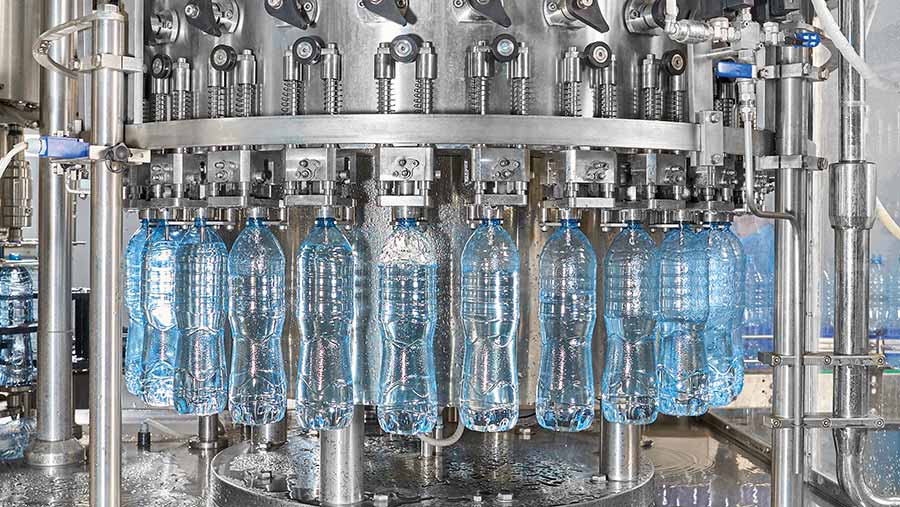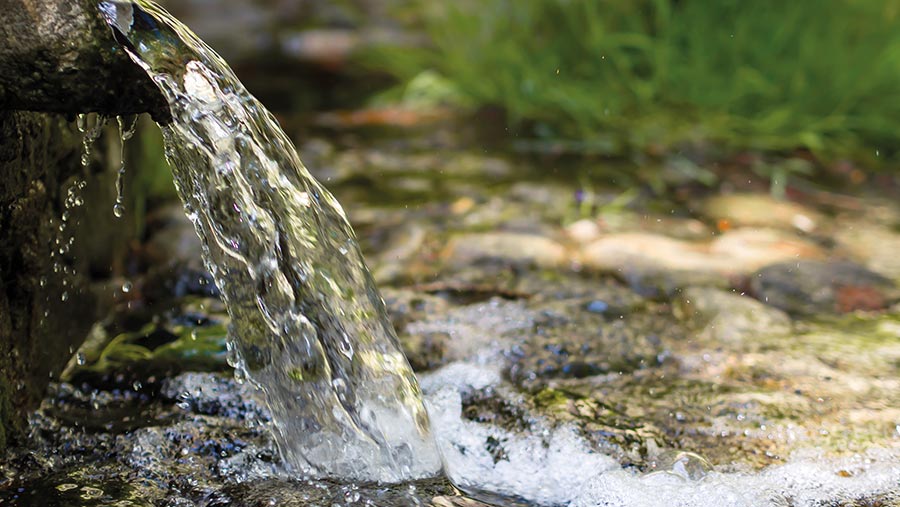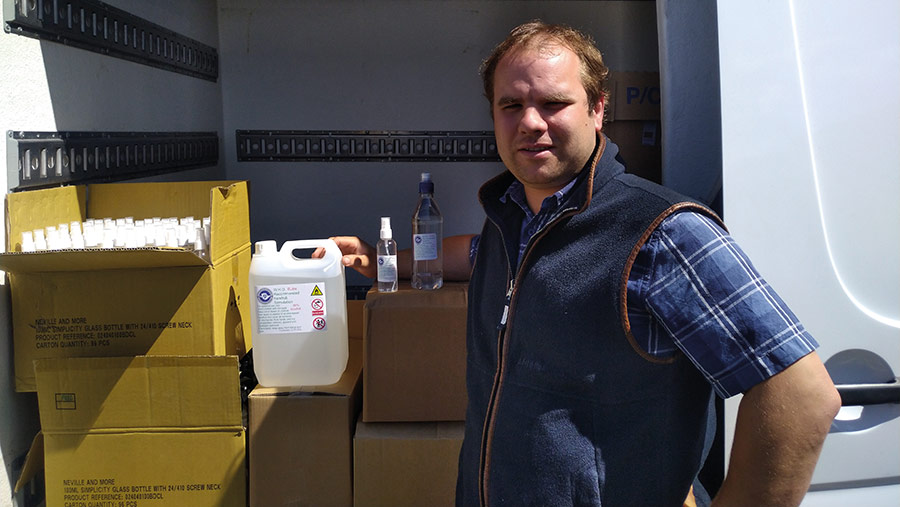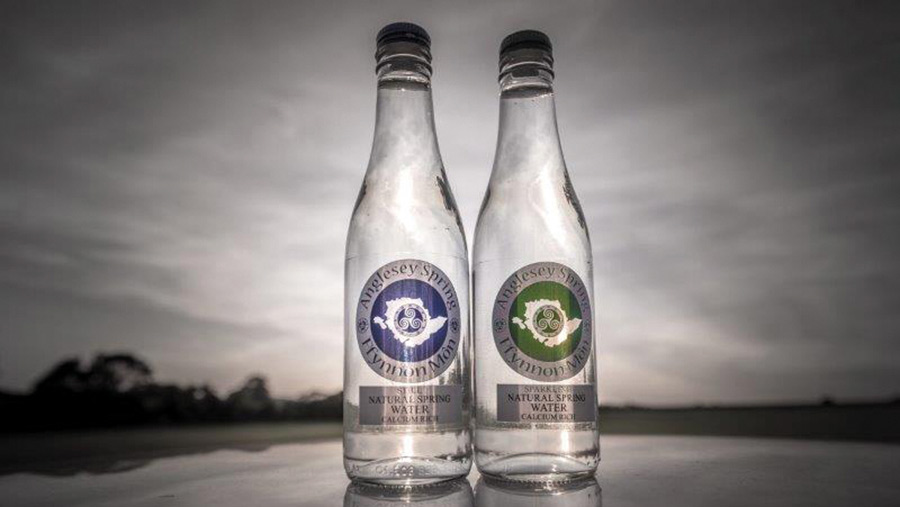So you want to… Sell bottled water?
 © Sergeyklopotov/AdobeStock
© Sergeyklopotov/AdobeStock The drinks market can offer a wealth of opportunities for a farmer able to use their holding’s natural resources.
Though a sizeable investment at first, a bottled water enterprise can bring greater profits than some farming sectors.
The team at food and drink consultant Zenith Global explains what those looking to get into the industry need to know.
See also: So you want to… Make and sell ice cream?
What’s the market like?
The UK water drinks market peaked in 2018 due to the summer heatwave and slipped back slightly in 2019, though was still above 2017 levels.
Volumes excluding water coolers and dispensers dipped 3.1% to 3,500m litres in 2019, while value fell 2.5% to £2.7bn.
Where can bottled water be sold?
There are quite a number of small, local water producers. Supermarkets sometimes give access to local suppliers. Many people assume that supermarkets are the objective, but supplying to them is demanding and it may be best to build a local loyalty first. Restaurants and hotels also like local products.
What types of water are there?
There are three types of bottled water:
- Natural mineral water
- Spring water
- Bottled drinking water
Natural mineral water must:
- Come from a named groundwater source.
- Be of suitable quality from the ground without undergoing treatments which would alter its natural character. It is permitted to filter out unstable elements and to add carbon dioxide to make it sparkle.
- Be chemically stable over time – tested over two years to demonstrate a lack of seasonal variation.
Spring water must meet similar quality standards, and come from a named groundwater source, but may be treated within strict guidelines.
Bottled drinking water can be sourced from groundwater or tap and may be treated to ensure it meets the prescribed quality standards.
The water is packaged in small glass bottles, polyethylene terephthalate (PET), cans or recyclable cooler bottles.

© Oktay/AdobeStock
How do you start?
Check the quality of the water, its consistency and its replenishment by nature through rainfall.
To gain spring or natural mineral water status, there are processes to go through.
The local authority is the regulator and it is important to consult a hydrogeological expert to check if the source is suitable for spring or natural mineral water and any accreditations required.
Sparkling water and still water each have their own quality requirements. Flavoured and functional waters add an extra dimension of complexity as well as cost, though they can sell for a higher price.
What about licences?
In addition to regulations for abstraction licences, the sale of packaged water is covered by bottled water regulations in the UK, designed to ensure the product is pure and safe.
Bottled water is considered a packaged foodstuff and so a producer needs to:
- Have a food safety management system based on HACCP principles, including track and trace, recall procedures, sample testing and retention, training records, health screening for staff and visitors, hygiene standards, equipment and building prerequisites.
- Observe national product labelling regulations.
- Comply with the standards of the British Retail Consortium (or similar trade body) and submit to audits of premises on an ongoing basis.
- Carry appropriate product liability insurance.
What equipment and resources are needed?
Spring and natural mineral water must be bottled at source, so they cannot be tankered to a bottling plant elsewhere.
Planning permission will be needed, whether existing buildings are converted for the bottling plant or new buildings are proposed.
A hygienically designed borehole or spring capture structure will be needed to extract the water from the ground, and a water abstraction licence will be required from the Environment Agency or Natural Resources Wales.
How much will it cost to set up and run?
Costs vary, but to deliver a return on investment, a bottling plant needs to be of a certain size.
Food-grade piping must be used throughout and the entire process must be spotlessly clean.
A suitably constructed watersource, delivery pipework, a bottling line, an in-house testing laboratory and warehousing will all usually be needed.
If employing staff, employment conditions must comply with the regulations.
As a rule of thumb, the cost of establishing a reasonably sized bottling plant is at least £2m for watersource infrastructure, bottling plant equipment and labelling. Transport, marketing and staffing costs will be extra.
A start-up producer would be very strongly advised to seek appropriate professional advice before investing in equipment and premises. Mistakes made at the outset can be difficult and expensive to rectify later.
Is it a profitable sector?
It can be and many businesses have prospered. But the margins are often tight and it could take a long time for a new business to become profitable.
What’s the best way to market this business?
The first and most important hurdle is to identify what is special about the water: the area, the story, the quality, the character and the reason for somebody to stock and consume it in place of a competitor.
Differentiation is absolutely key; there needs to be a clear reason to purchase your product in an already overcrowded market.
The second hurdle is commercial: are you able to give a better margin and return to the distributor than the product they are already receiving?
What are the legal considerations?
Alongside the requirements mentioned above, the normal business rules and regulations apply, such as those covering employment law, VAT registration, planning regulations and Companies Acts.
What are the tax considerations?
The same as for other businesses. VAT is charged on water, even though it is a natural product.
Case study: Anglesey Spring
Anglesey Spring is based on Dafydd Thomas’s 69ha mixed family farm. Mr Thomas started a contracting business when he left school, which funded the water venture, and also runs a biofuels business.
Once the bottled mineral water enterprise was established, he created a distillery, making craft alcohol from scratch. During the Covid-19 outbreak, he has used the distillery to make hand sanitiser, which he has donated to the NHS, as well as £4,000 of the product’s proceeds.
Mr Thomas started testing the farm’s water about six years ago, after seeing an opportunity to prosper from the island, which he described as one of the most economically deprived areas in Wales.

Dafydd Thomas
The water was tested for three years and as well as a high mineral content, it was discovered it contained half the calcium content of milk.
“I will immerse myself in information and look at how other people have done it for about two weeks and then I’ll sit down and get it all together,” Mr Thomas says.
“I studied the legislation myself, designed the layout of the bottling plant and the building myself, and got my food hygiene certificate.”
In 2017, once the bottling plant was built, he delivered samples of the water around local towns and started to build up a clientele.
Now the still and sparkling water – which comes in three sizes: 330ml and 750ml glass bottles and 500ml plastic – is stocked in about 40 local shops and high-end establishments such as wedding venues and spas, with pallets being delivered to customers as far afield as London. The business sells more than 100,000 litres/year.

Mr Thomas has six staff running the filling and capping machines as part of the bottling process, and he intends to take on a few delivery drivers soon.
“We had to do the bottling by hand at the start because it was cheaper, but next year I want to look at automation,” he says.
“The bottling plant and the building was the biggest investment because it had to be brand new, but the rest I could get second-hand at auctions, like vans and storage racks.
“I did take a risk because I was the first to do it on the island and there could have been no interest.”
Rather than finding the process stressful, Mr Thomas enjoyed learning about the industry and the process. He says seeing everything come together gave him a great sense of satisfaction and achievement.
“The best part is seeing something that you have designed and made on the shelves and people drinking it and enjoying it,” he says.
“The most difficult part is distribution and the applications and administration that come with trying to get into the bigger stores.”
He advises anyone looking to start a similar business to go in with their eyes open, aware there is plenty of planning and investment involved, and with so many big companies already in the sector, it is better to focus on quality rather than quantity.
